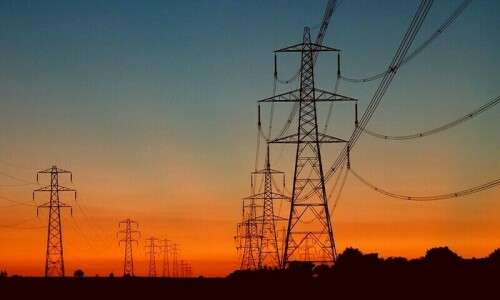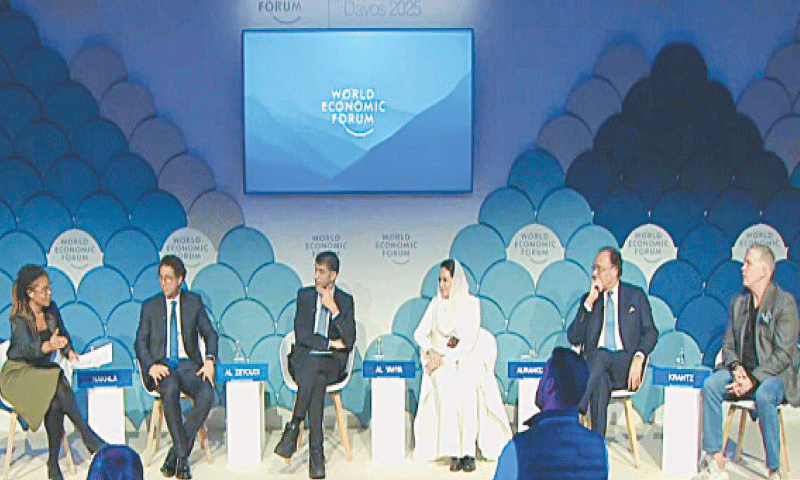Introduction: The Need for Energy Efficiency in Pakistan
In a strategic move to address the growing power crisis, the federal government of Pakistan has introduced new measures aimed at improving energy efficiency across various sectors. Energy conservation has become a critical priority, as the country’s building sector consumes a significant portion of the total energy used, contributing to both power shortages and rising costs for consumers. The government is now urging all provinces, Azad Jammu & Kashmir, and Gilgit-Baltistan to implement the Energy Conservation Building Code (ECBC-2023) in both public and private sector buildings.
This move comes as part of the broader effort to ensure sustainable energy consumption, reduce power losses, and alleviate the financial burden on consumers while promoting economic growth. Let’s delve deeper into this initiative and its implications.
H1: Pakistan’s Push for Sustainable Energy Utilisation
H2: Building Codes for Energy Conservation
The government has mandated that all building projects, including those in the public and private sectors, adhere to energy efficiency guidelines. The new Energy Conservation Building Code (ECBC-2023) is a comprehensive framework designed to optimise energy usage in buildings, including residential, commercial, and public sector projects. The code was developed by the National Energy Efficiency and Conservation Authority (NEECA) and was approved by the National Economic Council (NEC) in 2023.
The implementation of ECBC-2023 aims to curb the escalating demand for energy, particularly in the building sector, which is responsible for consuming more than 60% of the country’s total energy. This consumption peaks during the summer months, exacerbating the power crisis as buildings designed without energy efficiency in mind place additional burdens on the national power grid.
H3: Power Minister’s Call for Action
Power Minister Sardar Awais Ahmed Khan Leghari recently issued letters to the chief ministers of all provinces, as well as to the Prime Minister of Azad Jammu & Kashmir and Gilgit-Baltistan, urging them to implement the Energy Conservation Building Code (ECBC-2023) in their respective regions. This code is a critical part of Pakistan’s efforts to reduce energy consumption across all sectors.
In his correspondence, the minister highlighted the direct correlation between inefficient building designs and increased energy consumption, which contributes to the nation’s growing power deficit. The government is focusing on integrating energy-efficient designs from the very beginning of construction to ensure long-term savings and sustainability.
H2: The Economic Impact of Energy Inefficiency
H3: Financial Burden of Inefficient Energy Use
One of the primary reasons for the push towards energy-efficient buildings is the financial strain caused by inefficient energy use. The building sector, in particular, has become a significant contributor to the nation’s energy woes. According to the Power Minister, conventional building designs, which disregard energy efficiency, have led to an unnecessary rise in energy demand. This results in additional investments in power plants to meet the increased load, as well as higher electricity bills for consumers.
In addition, to manage peak loads during the summer months, the power sector has to maintain several power plants that remain idle for the majority of the year. This inefficiency leads to additional costs that are eventually passed on to consumers in the form of higher energy tariffs. The implementation of energy-efficient building codes would significantly reduce the need for such capacity payments, ultimately leading to lower costs for both the government and consumers.
H3: Energy-Efficient Buildings: A Solution for the Future
Building structures that are energy-efficient can play a crucial role in reducing the national energy demand. By adhering to the new energy codes, buildings will require less energy for lighting, heating, and cooling. This will reduce the need for additional power generation capacity, thereby decreasing the financial burden on the government and energy consumers.
Energy-efficient buildings also offer environmental benefits, as they reduce the carbon footprint associated with energy consumption. Furthermore, these buildings are better equipped to handle extreme weather conditions, such as the intense summer heat or the cold winter months, reducing the reliance on external energy sources for cooling and heating.
H2: Government’s Strategic Vision for Energy Conservation
H3: A Two-Pronged Strategy
The government’s strategy for tackling the power crisis is two-pronged: reducing energy wastage and ensuring sustainable development. The first part of the strategy focuses on increasing the energy efficiency of buildings by implementing the Energy Conservation Building Code (ECBC-2023) across the country. The second part emphasizes lowering the operational costs of the power sector through more efficient energy usage.
To this end, the Power Minister has requested the full cooperation of all stakeholders, including local governments, municipalities, and private sector developers, to ensure the successful implementation of the code. In his letters, the minister also noted the importance of both public and private sector involvement in achieving these goals.
H3: Federal Government’s Efforts to Promote Energy Efficiency
The federal government has already taken steps to revise and update the Building Code of Pakistan (Energy Provisions 2011) to include energy efficiency measures. During a meeting on the strategic roadmap for energy conservation in February 2023, the Prime Minister directed the NEECA to revise the existing energy codes to align with international best practices. Additionally, development authorities have been instructed to update their building bye-laws to incorporate these energy-saving measures.
These changes are part of the government’s broader efforts to align the country’s energy sector with global sustainability goals. The updated energy codes will not only improve energy efficiency in buildings but also promote sustainable growth and reduce environmental impacts.
H2: The Role of Public and Private Sectors in Energy Efficiency
H3: Public Sector Contributions to Energy Conservation
The public sector plays a significant role in shaping the future of energy conservation in the building sector. Investments made through the Public Sector Development Programme (PSDP) and the provincial Annual Development Programmes (ADP) are essential to promoting energy efficiency. These investments can be directed towards constructing energy-efficient government buildings and public infrastructure, which will set an example for the private sector to follow.
Furthermore, local governments, municipalities, and development authorities are expected to enforce energy-saving regulations and ensure that new buildings comply with the updated energy codes. Public sector projects can also serve as pilot initiatives for large-scale energy-efficient developments in other sectors.
H3: Private Sector’s Role in Driving Energy Efficiency
The private sector also plays a crucial role in the success of the government’s energy efficiency initiatives. Developers and builders are encouraged to adopt energy-efficient designs and technologies in their construction projects. By incorporating energy-saving features such as better insulation, efficient lighting, and solar energy solutions, private developers can contribute significantly to reducing the country’s overall energy demand.
Private sector involvement in energy-efficient construction will not only benefit the environment but will also help developers reduce operational costs and enhance the marketability of their properties. In a world increasingly focused on sustainability, energy-efficient buildings are becoming more attractive to both investors and consumers.
H2: Challenges and Opportunities in Implementing Energy Codes
H3: Overcoming Challenges in Building Design
Despite the clear benefits of energy-efficient building designs, there are several challenges that need to be addressed. One of the biggest obstacles is the lack of awareness and expertise in energy-efficient construction techniques among builders and developers. There is a need for targeted training and education to ensure that the workforce is equipped to implement the new building codes.
Another challenge is the cost of implementing energy-efficient measures, which may be perceived as a financial burden by some developers. However, the long-term savings in energy costs and the potential for government incentives should help offset these initial costs.
H3: Capitalising on Opportunities for Growth
Implementing energy-efficient building codes offers a wealth of opportunities for growth in the construction and energy sectors. As demand for energy-efficient buildings increases, new markets will emerge for energy-saving technologies, such as solar panels, efficient heating and cooling systems, and sustainable building materials. Additionally, the construction of energy-efficient buildings will create new job opportunities in the design, construction, and maintenance sectors.
By prioritizing energy efficiency, Pakistan can reduce its energy imports, strengthen its power grid, and promote economic growth across multiple sectors.
FAQs
1. What is the Energy Conservation Building Code (ECBC-2023)?
The ECBC-2023 is a set of guidelines developed to promote energy efficiency in the building sector. It aims to reduce energy consumption in residential, commercial, and public buildings by incorporating energy-saving features into the design and construction process.
2. Why is energy efficiency important in Pakistan?
Energy efficiency is crucial in Pakistan because the building sector consumes over 60% of the country’s total energy. By improving energy efficiency, Pakistan can reduce power demand, lower energy costs, and decrease the environmental impact of energy consumption.
3. How will energy-efficient buildings reduce costs?
Energy-efficient buildings reduce the need for excessive heating, cooling, and lighting, which lowers electricity bills for consumers. In addition, energy-efficient buildings reduce the strain on the national power grid, helping to lower operational costs for the government.
4. What role does the government play in promoting energy efficiency?
The government plays a critical role by setting energy efficiency standards, revising building codes, and encouraging both public and private sectors to adopt energy-efficient practices. The government is also investing in energy-efficient public sector projects to set an example for the private sector.
5. How can private developers contribute to energy efficiency?
Private developers can contribute by adopting energy-efficient construction techniques and incorporating technologies like solar panels, energy-efficient insulation, and LED lighting in their buildings. These measures not only reduce energy consumption but also increase the marketability of properties.
SEE ALSO
https://flarenews.pk/2025/01/03/govts-commitment-to-eliminate-ttp-for-national-development/



